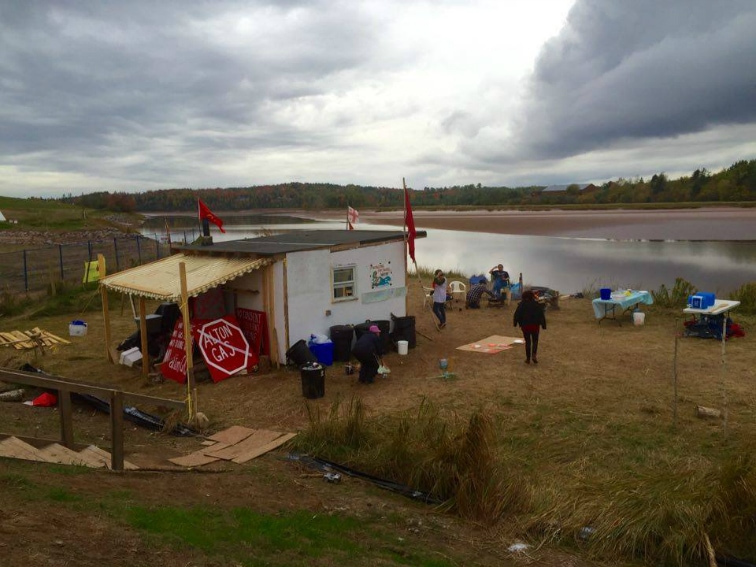KJIPUKTUK (Halifax) – In a legal brief to the Nova Scotia Supreme Court the provincial government is challenging the long-established duty to consult with Mi’kmaq people. Precedent for this goes back as far as the Simon decision in 1985.
All these prior cases agreed that the 18th century treaties between the Mi’kmaq and the Crown are peace and friendship treaties, not land transfer treaties. They were, and are, agreements about mutual protection and trade between equal nations.

The McNeil government and Justice Department lawyer Alex Cameron are challenging that legal consensus and precedent by arguing that the provincial government is only required to consult unconquered peoples when considering resource development. They argue that the Sipekne’katik band was conquered by the Crown and therefore does not need to be consulted with.
Activist Cheryl Maloney of the Sipekne’katik band who is fighting the construction of the Alton Gas storage facility in her region, is understandably angry at this approach. In an article by Local Xpress reporter Francis Campbell, Maloney is quoted as saying that “The Nova Scotia government refuses to recognize what has been recognized by the Supreme Court of Canada, the highest court in the land.”
Experts like Dalhousie chair of aboriginal law and policy Naomi Metallic are angered by the stance the legal brief articulates. In the same article Metallic calls it “deeply disconcerting.”
In a news release MLA and provincial NDP critic for Aboriginal Affairs Lenore Zann said that the position taken by the government is “simply unacceptable” and “incredibly disrespectful.” Gary Burrill leader of the NDP opposition took a similar tone accusing the McNeil government of “taking aim at the sovereignty of aboriginal communities.”
While it no doubt is irrational, disconcerting, and deeply disrespectful that this government take this stance, there is a political logic behind this move that is worth examining.
The court case is focused on whether the McNeil government met their commitments to consult the band before construction of the Alton Gas project began.
By filing this brief, the provincial Liberals are trying to reverse the legal precedent set out over the last decades. They need to reverse this precedent if they wish to develop the provincial energy industry in the manner that governments have in the past.
The development in Sipekne’katik territory as well as the future development in Point Tupper by Bear Head LNG ltd, require access to indigenous land and resources. While these developments are costly to the taxpayer and potentially environmentally destructive, aboriginal rights represent the biggest legal challenge to resource development.
By weakening the case for indigenous sovereignty government and industry will be able to access resources that they do not yet have legal title to.
It is a political move which is part of a political program. This provincial government and others across the country are not committed to changing the way that energy is produced. The case for Indigenous sovereignty, which has been recognized by the federal Supreme several times across the country and international law, poses the greatest threat to this effort.
In this context, the Trudeau government’s recent decision to back away from its legal commitment to get prior free and informed consent for resource development on Indigenous lands, as agreed to in the UN Declaration on the Rights of Indigenous Peoples, the intention of the federal and provincial governments become quite clear.
The international resistance by Indigenous peoples all over this continent poses the greatest threat to the expansion of the oil industry. Indigenous activists asserting their land and resource rights have the power to stop construction of oil infrastructure dead in its tracks, as seen with the Northern Gateway Pipeline.
Governments that are committed to facilitating the oil industry’s imperative to grow will inevitably contradict the promises and commitments to indigenous peoples that they have only relatively recently agreed to.
Using the force of public institutions to target disadvantaged people for political ends is nothing new to Nova Scotia, and it demonstrates how the McNeil government is more than willing to go down that same old shameful road in order to keep corporations like AltaGas happy.
If you can, please support the Nova Scotia Advocate so that it can continue to cover issues such as poverty, racism, exclusion, workers’ rights and the environment in Nova Scotia.




Get the activists to look in to and attack the “Doctrine of Discovery” initiated by the Vatican a few centuries ago. It needs a lot of light shone on it and soon. Seriously.